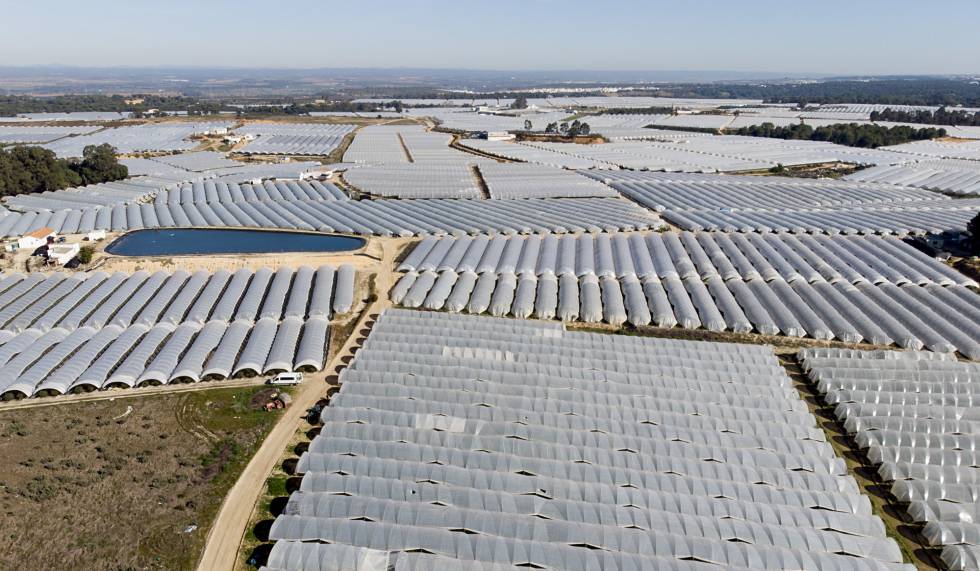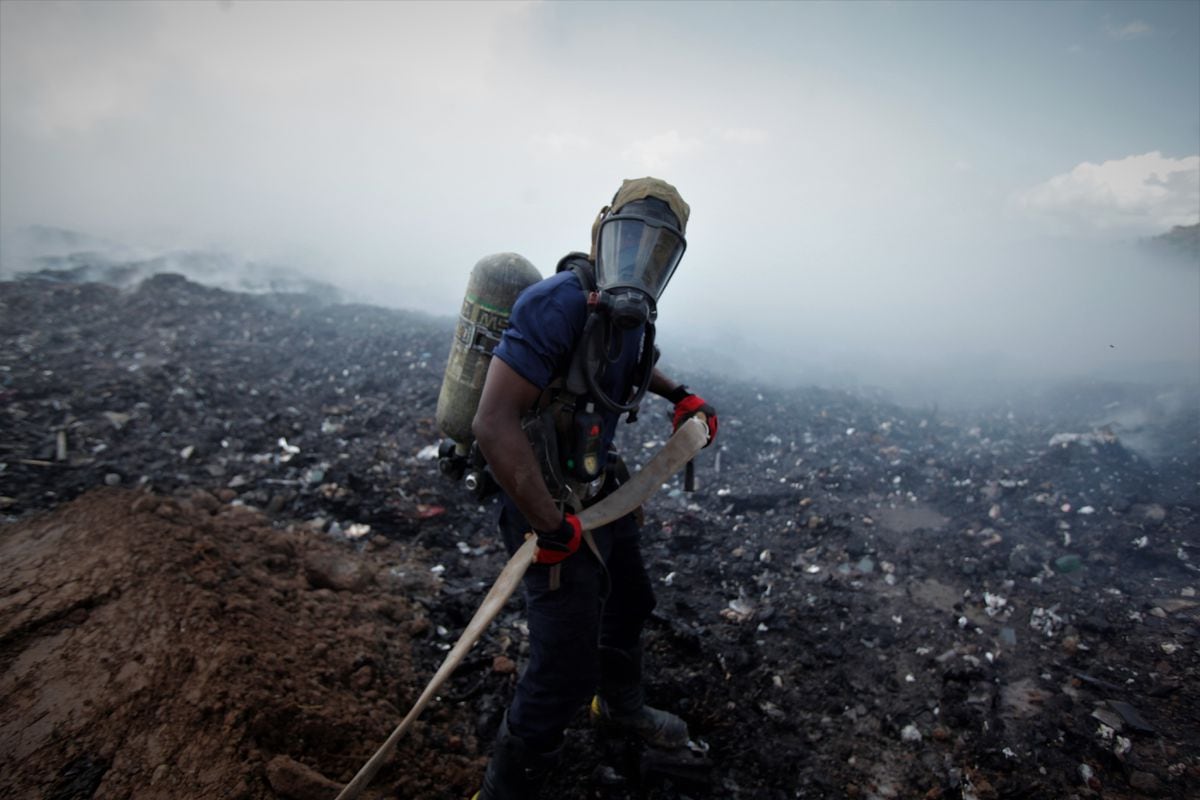Spain is the country of the European Union that has the most open files at the moment for infringements of community environmental regulations.
Specifically, the European Commission maintains 26 procedures active in February.
In that list of the most offending green directives, the following positions are occupied by Greece (25), Poland (25) and France (22), according to the count made by EL PAÍS.
On the other hand, those with the fewest procedures open out of the 27 are the Netherlands (6), Estonia (4) and Denmark (3).
The fact that this February Spain heads this list is neither circumstantial nor an exception.
Because the country has been occupying those top positions for years.
Community sources attribute this situation, in part, to the period of political instability in the second half of the last decade, when the succession of general elections —there were elections in 2015, 2016, April 2019 and November 2019— and the difficulties to forming a Government caused a long delay to accumulate in the transposition of European environmental directives into Spanish law.
Indeed, several of the open files at this time are motivated by the non-adaptation to the community directives.
This is the case of the last two procedures that the Commission initiated at the beginning of this month against Spain: an infringement for not having approved the legal changes necessary to veto the marketing of a series of single-use plastic products such as straws and cutlery and another for not having modified the regulation on noise to measure emissions from cars, trucks, trains, planes and factories.
But the truth is that the political blockade of the past decade and the difficulties in carrying out legal reforms in Congress are far from the only causes of the enormous number of files that Spain accumulates.
There are also quite a few open cases due to European environmental regulations and standards that have been breached for years —and in some cases, such as the discharge of urban water into rivers and the untreated sea, for more than three decades—.
The Commission officially opens the files against Spain, but the breaches are not only from the central Administration.
There are many infractions that are motivated by the lack of measures and the bad practices of the regional governments and the City Councils.
When non-compliance persists and it reaches the point where Spain is sanctioned, the central Administration forces the communities to pay the part of the fine that corresponds to them, as is happening with the case of the lack of urban water treatment .
These are some of the most important cases of the 26 files that Brussels currently has open against Spain for environmental issues.
sewage treatment plants
A millionaire fine that continues to grow
Aerial view (with a drone) of the Barbate treatment plant (Cádiz) Marcos Moreno
The case.
A European directive from 1991 established that all urban agglomerations of more than 15,000 inhabitants in the country should give adequate treatment to their wastewater.
Spain failed to comply with the first deadline that had been given: 2001. And the Commission opened a file in 2004. Brussels was granting extensions for the country to reach 100% purification, but they were not fulfilled and in 2018 there were still nine agglomerations without purification its waters correctly.
The Court of Justice of the EU, at the request of the Commission, fined Spain 12 million euros that year for non-compliance up to that time.
And he added a six-monthly penalty of another 11 million while those nine agglomerations continued to fail to comply with the law.
What has been paid so far already amounts to 63 million (which has become the largest European sanction against Spain so far).
The problem is that, in addition to this file, Brussels has four more open for poor treatment of urban water that may end in fines in the future.
One of them refers to non-compliances in 332 small agglomerations.
Situation.
Spain will continue to pay for failing to comply with the purification standard for agglomerations of more than 15,000 inhabitants until at least 2025, admits the Government.
The other files could also end in sanction.
Responsible.
City Councils and, subsidiarily, the regional and central Administrations.
Theft of water in Doñana
illegal irrigation
Greenhouses in the surroundings of Doñana, in Huelva.
PACO BRIDGES
The case.
After complaints from environmental groups about the illegal extraction of water from the aquifer that feeds Doñana, in Huelva, the European Commission opened a file in 2014 against Spain.
In 2019, Brussels filed a lawsuit and in the summer of 2021 the EU Court of Justice issued a conviction in which it criticized the lack of control over these extractions from the powerful agricultural sector in the area and from the tourist center of Matalascañas. .
The sentence, being the first, only confirms the non-compliance and does not carry any sanction.
If the Commission understands that the problem persists, it could file a complaint again and, this time, request a sanction against the offending country.
Situation.
The Commission has threatened to present this new lawsuit if a rule goes ahead in the Andalusian Parliament to amnesty thousands of hectares of illegal irrigation in the Doñana area.
The law has begun to be processed with the favorable vote of the PP, Vox and Ciudadanos and the abstention of the PSOE.
Responsible.
Central Government, Junta de Andalucía and City Councils.
single use plastics
Without applying the veto to straws
Plastic pollution on a beach in Tarragona.
GOOD KARMA PROJECTS
The case.
In 2019, the European institutions approved a directive that seeks to reduce plastic pollution in which, among other things, it was established that as of July 2021, a series of single-use products made of this material could not be marketed in the EU. (such as straws, cutlery and swabs).
But Spain has not yet approved the waste law in which that veto is included and this February the Commission has opened an infringement file.
In addition, in 2020 the Commission opened two other procedures due to the lack of transposition of two other packaging and waste directives.
Situation.
The waste law is now being processed in the Senate and is expected to be definitively approved in the first half of this year.
It is the norm that will serve to transpose the three directives for which Brussels has opened the file.
Responsable.
Central administration.
Pollution
Madrid and Barcelona
Air pollution in Madrid.
Oscar Carracosa (Getty Images)
The case.
Spain currently has two cases open for poor air quality: one for particle pollution and the other for nitrogen dioxide pollution.
This last procedure is the one that is most advanced and refers to the repeated breach of the maximum levels of nitrogen dioxide (a compound linked to gasoline and diesel car engines) in Madrid, Barcelona and the Vallès-Baix Llobregat area. .
For more than a decade, Madrid and Barcelona have not complied with those limits.
Situation.
The Commission denounced Spain before the Court of Justice of the EU for the case of nitrogen dioxide in 2019 and the sentence is expected to be handed down in the coming weeks.
In this case, it will not be associated with a sanction at the moment.
Responsible.
Town halls.
Illegal landfills
Uncontrolled deposits
An illegal landfill in Madrid.
JAIME VILLANUEVA
The case.
Spain has already accumulated three sentences for illegal waste dumps, although no sanctions have yet been issued.
At the moment, an infringement procedure is active for the lack of closure, sealing and regeneration of landfills.
And according to the latest information provided by Brussels, in 2018 there were 1,513 irregular landfills without regenerating, which causes "significant degradation of the environment."
Situation.
The procedure is still open, although Brussels has not yet brought Spain before the Court of Justice of the EU in this case.
Responsible.
Central government, communities and municipalities.
AVE to nowhere and other infrastructures
Without respecting the protected spaces
Platform of the AVE Antequera-Sevilla at the height of Marchena.
JULIAN ROJAS
The case.
The European Commission opened a file against Spain in 2011 for the impact of the works on the high-speed train between Marchena and Osuna, in Seville, in a bird protection zone.
Spain received a first conviction in 2016 and, as corrective measures are still not applied, Brussels warned last September that it plans to bring the country to justice again and that it will request a sanction.
It so happens that this work, which dates back to the first decade of this century, has never been inaugurated and the 77 kilometers of platform for a high-speed train between Seville and Malaga are not used.
Spain has three other files open for infrastructures that have caused damage in environmentally protected areas.
Situation.
The procedure for the AVE to nowhere is still open and Brussels is considering taking Spain back to court to be sanctioned.
Responsable.
Board of Andalusia.
Nitrates in the water
Fertilizers and manure
Pig farm in Castillejar, Granada.
PEDRO ARMESTRE
The case.
Brussels sued Spain before the Court of Justice of the EU in December 2021 for not taking sufficient measures to control water pollution by nitrates from agriculture and livestock (mainly due to the use of fertilizers and waste from farms).
The Commission has been urging Spain since 2018 to apply nitrate control measures in most of the autonomous communities to protect water bodies from this pollution.
Situation.
The Commission sued Spain on December 2, although for now the case will not end in a sanction.
Responsable.
Autonomous communities.
Noise
Another directive without transposing
An airplane flies over houses in San Fernando de Henares (Madrid).
Santiago Burgos
The case.
The European Union modified the regulation to measure the noise caused by cars, trucks, trains, planes and factories on December 21, 2020. Member States had to adapt their standards to the new way of measuring these noises in one year.
However, Spain (and 13 other EU countries) have done nothing so far.
The rest would have already transposed the norm, according to the public records of the European Commission.
Situation.
On February 9, 2022, the Commission initiated the file.
Responsable.
The Central Administration.
You can follow CLIMA Y MEDIO AMBIENTE on
and
, or sign up here to receive
our weekly newsletter
Exclusive content for subscribers
read without limits
subscribe
I'm already a subscriber



/cloudfront-eu-central-1.images.arcpublishing.com/prisa/DGSDSFXR4JH2FETCLHXGLMTMYQ.jpg)



